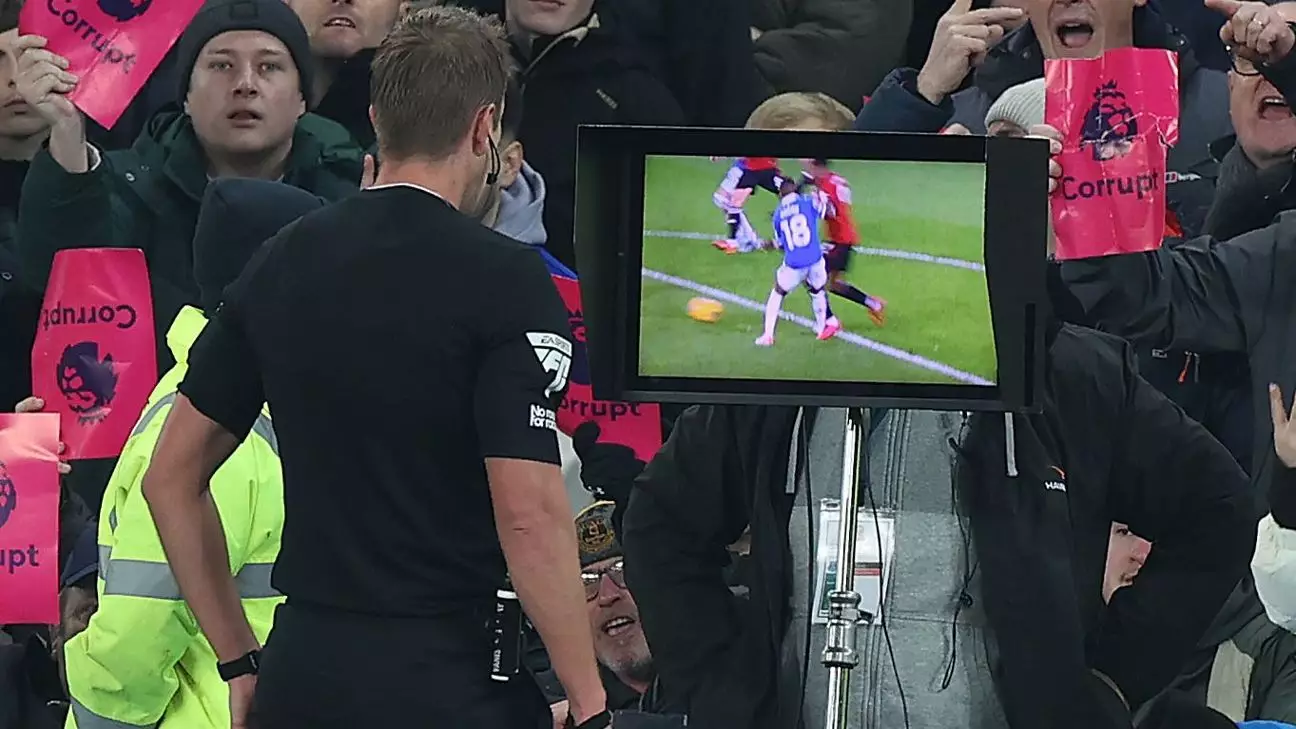The introduction of Video Assistant Referee (VAR) technology in the Premier League was aimed at reducing errors and improving the accuracy of key match decisions. However, the implementation of VAR has faced its fair share of challenges and criticisms. While there has been a decrease in VAR errors this season, there are concerns about the time taken for reviews and its impact on the flow of the game. This article will critically analyze the issues surrounding VAR in the Premier League and the measures being taken to address them.
One of the main criticisms of VAR in the Premier League is the excessive number of checks and the time taken for reviews. Tony Scholes, the chief football officer, acknowledges that there is room for improvement in this aspect. The lengthy delays have been a source of frustration for both players and fans, hindering the overall enjoyment of the game. Scholes emphasizes the need to improve the speed of VAR while maintaining its accuracy.
Accuracy vs. Decision Time
Finding the right balance between accuracy and decision time is a challenging task for VAR officials. Scholes acknowledges that decision times have increased this season, partly due to the heightened scrutiny following high-profile decisions. While there is a desire to make decisions more quickly, accuracy remains the priority. Placing a time limit on VAR reviews may not be appropriate if it compromises the correctness of decisions. The challenge lies in training VAR officials to make prompt decisions based on the facts without excessive double-checking.
Efforts have been made to improve the standards of refereeing and VAR in the Premier League. Howard Webb, the chief refereeing officer, plans to appoint new coaches and VAR specialists to enhance standards. The Premier League has also increased funding to the refereeing body, PGMOL, to implement the Elite Referee Development Plan. Furthermore, all contentious incidents are assessed by the Independent Key Match Incidents Panel, which provides an overview to guide club expectations and inform referees. These initiatives aim to ensure ongoing development and improvement in refereeing standards.
The 2023-24 season has witnessed a decrease in VAR errors compared to the previous season. However, there have been 20 VAR mistakes so far, with Liverpool being the most affected team. Brighton & Hove Albion and Wolverhampton Wanderers have also suffered from multiple errors. On the other hand, Aston Villa has benefitted the most from VAR decisions. The accuracy of key match decisions has significantly increased, from 82% without VAR to 96% this season.
The Refereeing Standard Debate
Scholes defends the standard of refereeing in England, stating that it is “at least as good [or] better than it’s ever been.” However, he acknowledges the need for continuous improvement to match the quality and advancement of players and coaches. Scholes emphasizes the importance of minimizing factual mistakes and subjective errors. Openness, integrity, and confidence in the system are crucial for maintaining a high standard of refereeing.
The fan experience is a crucial aspect of VAR implementation. While there is still majority support for VAR according to fans’ surveys, efforts must be made to improve the in-stadium experience. Limitations imposed by the IFAB restrict the usage of audio during the VAR process. Scholes envisions a future where both video and audio are played live and explained afterward to the crowd. The introduction of post-VAR decision announcements by referees to the crowd is one upcoming development to enhance communication with fans.
The Premier League is currently conducting tests with semi-automated offside technology. This technology aims to speed up review times without compromising decision accuracy. However, Scholes highlights the challenges of identifying different body parts accurately in complex situations. While the technology has been successful in other competitions, its implementation in the Premier League requires careful consideration to avoid unintended problems.
Increasing Effective Playing Time
Measures to combat time-wasting have led to an increase in effective playing time in the Premier League. The application of these measures has resulted in an additional 3 minutes and 31 seconds of playing time per match, with the average match length now standing at 101 minutes and 41 seconds. This ensures that fans get more action and less time wasted during matches.
The introduction of VAR in the Premier League has undoubtedly improved the accuracy of key match decisions. However, challenges remain, particularly in terms of the time taken for VAR reviews and its impact on the flow of the game. Efforts are being made to address these issues through coaching and training initiatives, increased funding, and ongoing assessments. The goal is to strike a balance between accuracy and decision time, ensuring a positive fan experience and an improvement in overall match officiating.
